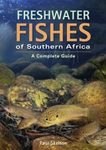About this book
Advances in Tuna Aquaculture: From Hatchery to Market provides detailed overviews on the current status of tuna fisheries, fattening, and farming practices, as well as advances in closed-cycle tuna aquaculture. Contributors are renowned scientists, internationally recognized as authorities in their fields. Advances in Tuna Aquaculture addresses all basic and applied aspects of tuna aquaculture, presenting and discussing the global status of tuna fisheries, reproduction, broodstock management, spawning, larval rearing and early developmental stages including nursery and grow out methods. It presents incorporates the most comprehensive and updated data, statistics, and trends in tuna fisheries and aquaculture, covering and addresses a variety of topics ranging fromfrom endocrinology, nutrition, diseases, and genetics to economics and markets. It covers describes recent up-to-date progress on tuna aquaculture and hatchery development. It also provides a synopsisn overview of the challenges presently confronted by tuna aquaculturists,facing tuna aquaculture and and offers innovative views on the challengesbottle-neck issues faced by the industry with the current shift from fisheries to fattening to closed-cycle aquaculture.
This is the first book to encompass all aspects related to the tuna aquaculture industry, and merges them into a state-of-the-art compendium that will serve as seminal reference for students, researchers, and professionals working with tuna biology, fisheries, and aquaculture worldwide.
Contents
Chapter 1. Overview on Status and Technological Advances in Tuna Aquaculture Around the World
Chapter 2. The Fisheries for Tunas in the Eastern Pacific Ocean
Chapter 3. Challenges Faced by Management of the Atlantic Bluefin Tuna Stock Related to the Development of Mediterranean Bluefin Tuna Farming
Chapter 4. From Ocean to Farm: Capture-Based Aquaculture of Bluefin Tuna in the Eastern Mediterranean Sea
Chapter 5. Research on the Reproductive Biology and Early Life History of Yellowfin Tuna Thunnus albacares in Panama
Chapter 6. Tuna Aquaculture in Europe
Chapter 7. Reproduction, Broodstock Management, and Spawning in Captive Atlantic Bluefin Tuna
Chapter 8. Tuna Farming in Japan and Mexico
Chapter 9. Ranching of Southern Bluefin Tuna in Australia
Chapter 10. Southern Bluefin Tuna Captive Breeding in Australia
Chapter 11. Diseases in Tuna Aquaculture
Chapter 12. Nutrition of Cultured Tuna Species
Chapter 13. Genetics in Tuna Aquaculture
Chapter 14. Tuna Economics and Markets
Customer Reviews
Biography
Dr. Daniel Benetti is a Professor and the Director of Aquaculture at the University of Miami's Rosenstiel School of Marine and Atmospheric Science, where he was the Chairman of the Division of Marine Affairs and Policy from 2003 to 2008. He has over 30 years experience in aquaculture worldwide. Besides his academic responsibilities at RSMAS – where he teaches the 3 graduate level core courses of the Aquaculture Track degree -, he carries out scientific and R&D projects on technology development and environmental issues related to aquaculture. He specializes in hatchery and open ocean growout technologies of marine finfish species, including, most recently, cobia, Seriola (yellowtail jacks), snapper, tuna, mahimahi and flounder. He has published over 100 articles in aquaculture science and technology, has extensive experience with the industry and has been a consultant for the private and government sectors in Latin America, U.S., Europe, Asia, Caribbean and Australia, where he has partnered with the government and the industry to spearhead advanced technology for hatchery and sustainable offshore aquaculture development. He is the scientific coordinator of several offshore aquaculture projects and operations in the US and abroad. He is consulting for technology transfer of marine fish hatchery and growout for the government and private sector of a number of countries in 5 continents in project development for sustainable aquaculture and environmental monitoring programs with focus on open ocean and coastal mariculture operations. His work is centered on innovative research to ensure that seafood production through mariculture is wholesome, environmentally sustainable and economic viable.


































